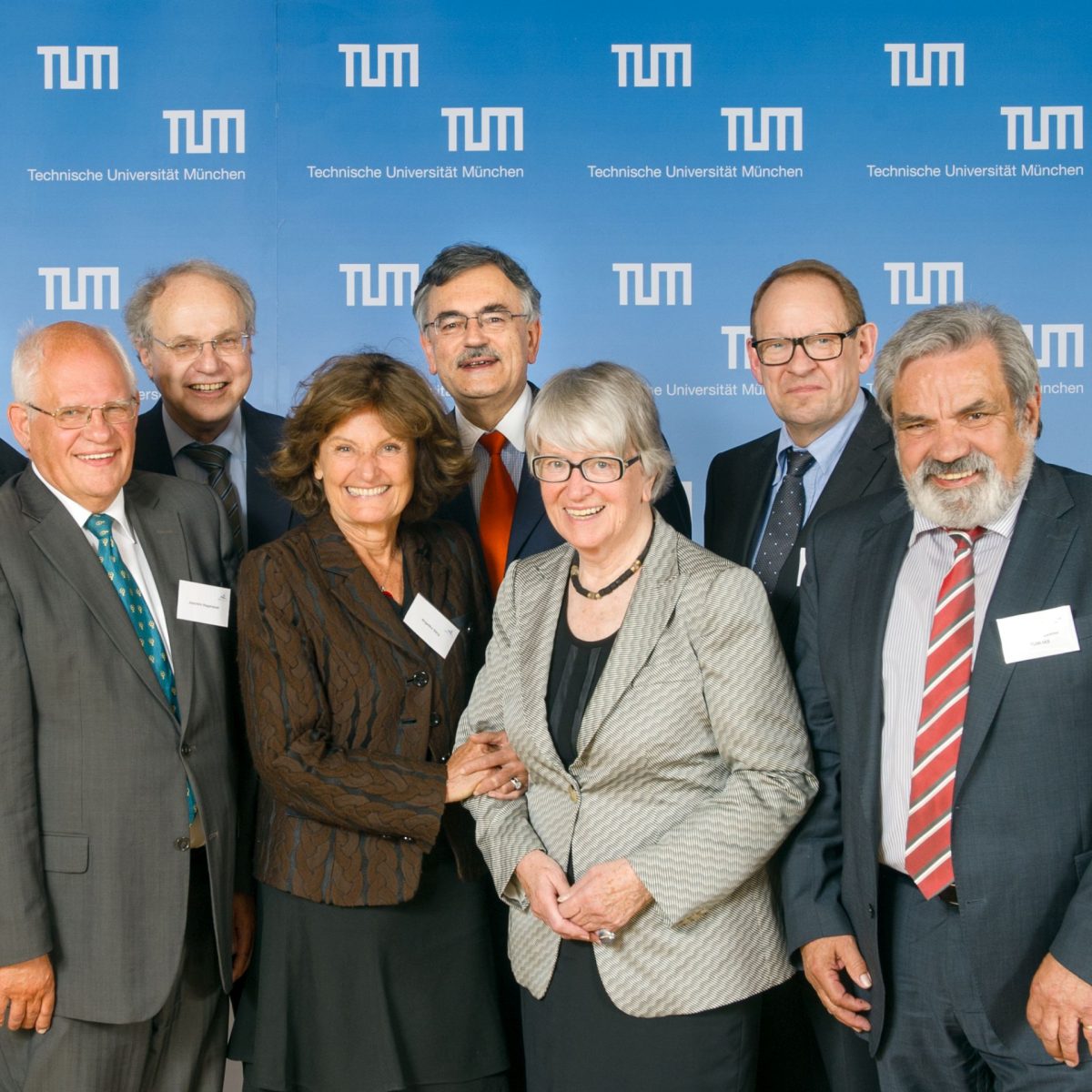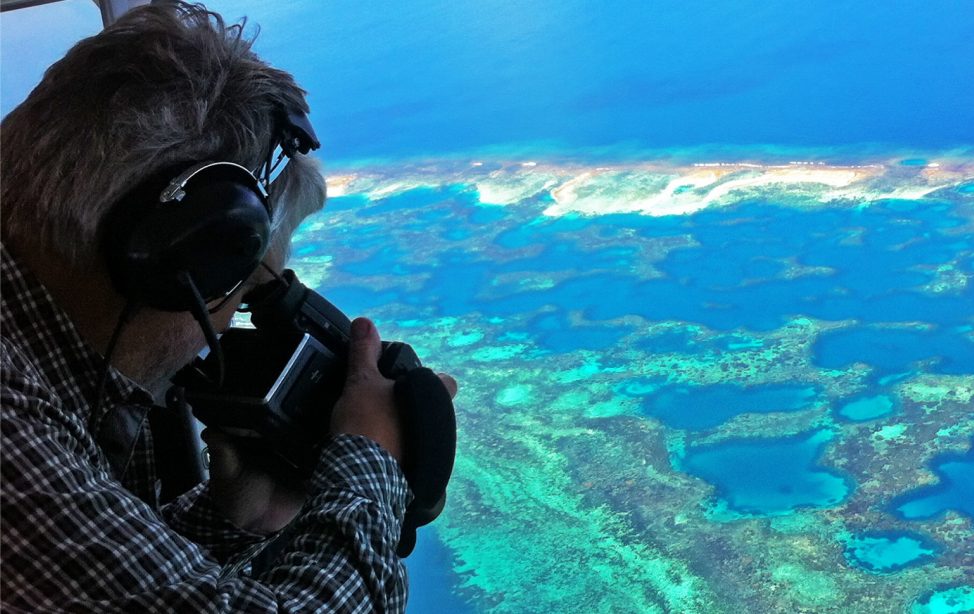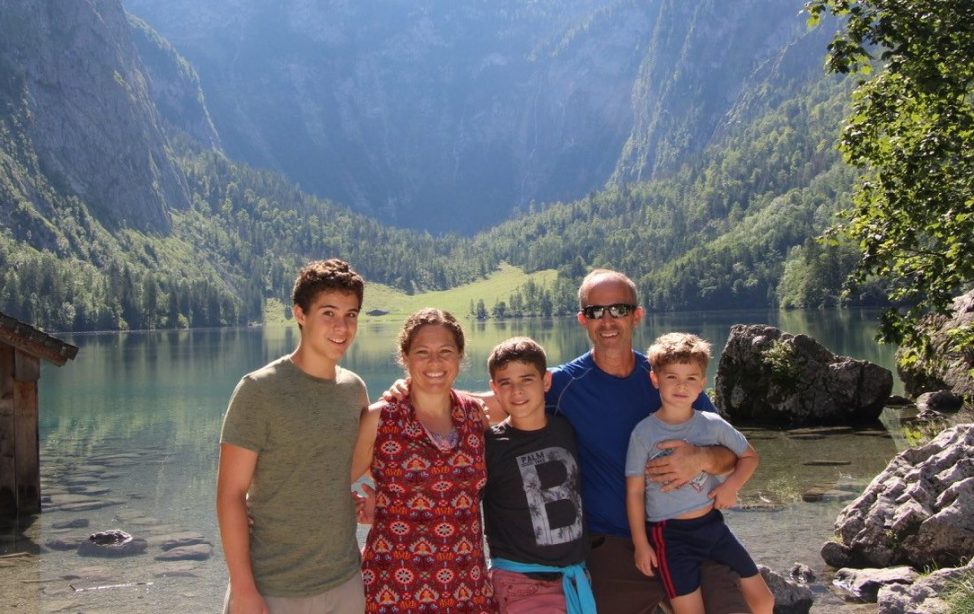
TUM Alumni Angelika Görg is committed to several functions at TUM: Here (in the middle left) as member of the General Assembly of the Institute for Advanced Study in the year 2014 (Image: Andreas Heddergott/TUM).
The first habilitated woman in her faculty
The methodical development work on differentiating and identifying proteins, i.e. the path from genome to proteome, became Angelika Görg’s passion. In the eighties this was electrophoresis. There were national electrophoresis companies worldwide that held national and international meetings on a regular basis. It was here that Angelika Görg began lecturing. “The high-resolution two-dimensional electrophoresis developed by us with immobilized pH gradients and subsequent identification of hundreds of proteins was very state-of-the-art.” So up-to-date that the young researcher was soon regularly invited abroad to lectures and collaborations. In 1989 she was the first woman to be habilitated at her faculty.
Angelika Görg has researched and taught all over the world. She has been a highly esteemed guest at congresses and co-operations in America, China, Japan, Korea, and Australia. “I have learned of the latest results of research in the craziest places in the world. It never cost TUM anything. The trips were always paid my hosts.” However, TUM created the necessary framework conditions to support such broad international research activity. Angelika Görg, who has received many awards and honors, is still grateful to TUM for the good conditions there. “My laboratory wasn’t huge, but that wasn’t what mattered,” she says, “It was important that TUM allowed me to have a worldwide radius of action in research that meant my ‘home’ was never boring. I’m very grateful for that.”
I found a way, but i really had to apply myself.
Awarded many times
Looking back on her research activities, she still enthuses: “It was wonderful to share the enthusiasm, and the sense of awakening in a new field of knowledge and to share it with colleagues from all over the world and then teach the students such brand new topics, as it were, in lectures at TUM.”
Today, Angelika Görg’s successes can no longer be presented as being restricted to a certain area. Among other things, she successfully applied for the first EU-Proteom project, became involved as President of the German Electrophoresis Society and became a Council Member of the newly founded worldwide Human Proteome Organization in 2001. She has received the Federal Cross of Merit on Ribbon and the Bavarian Order of Merit. In 2009, TUM President Wolfgang A. Herrmann awarded her the honorary title TUM Emerita of Excellence. From April 2020 she will be active as first Vice President for President Compliance at TUM.

Angelika Görg (Image: private).
Doctorate in Food Technology in 1973, habilitation in 1989
Angelika Görg studied Biochemistry and Food Chemistry. She came to TUM in 1969 to do her doctorate, and she went on to work as a research assistant and was then a senior academic director.
In 1993 she was appointed professor in the field of proteomics. Her pioneering work in this field has earned her worldwide recognition. With her new methodical developments in the field of electrophoretic separation methods, the natural scientist has made a major contribution to advancing proteome analysis at the international level.
She has received numerous scientific awards and has led proteome congresses worldwide. Since retiring, she has also been involved at TUM as a founding member of the Board of Trustees of the Institute for Advanced Study and as a commissioner of the Post Doc Mobility Fellowship program.
As deputy ombudsperson of TUM, she is currently responsible for examining scientific misconduct. Angelika Görg is the mother of a daughter, a practicing doctor who also studied at TUM, and the grandmother of two very bright boys.
Prof. Dr. Dr. Angelika Görg was appointed TUM Emeritus of Excellence by TUM president Prof. Dr. Wolfgang A. Herrmann in 2009.
From April 2020 she will be active as first Vice President for President Compliance at TUM.


